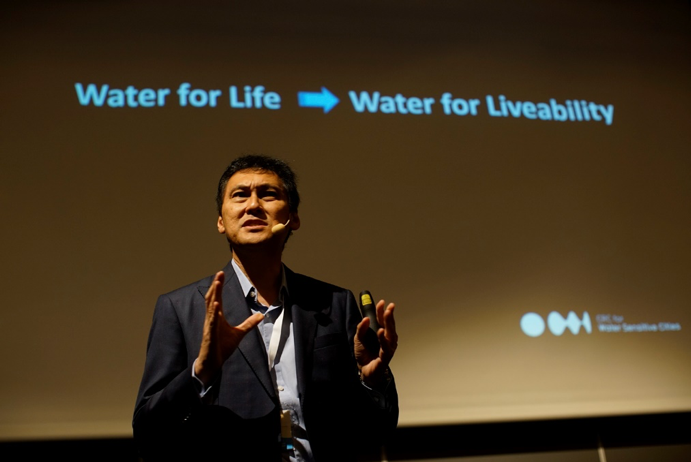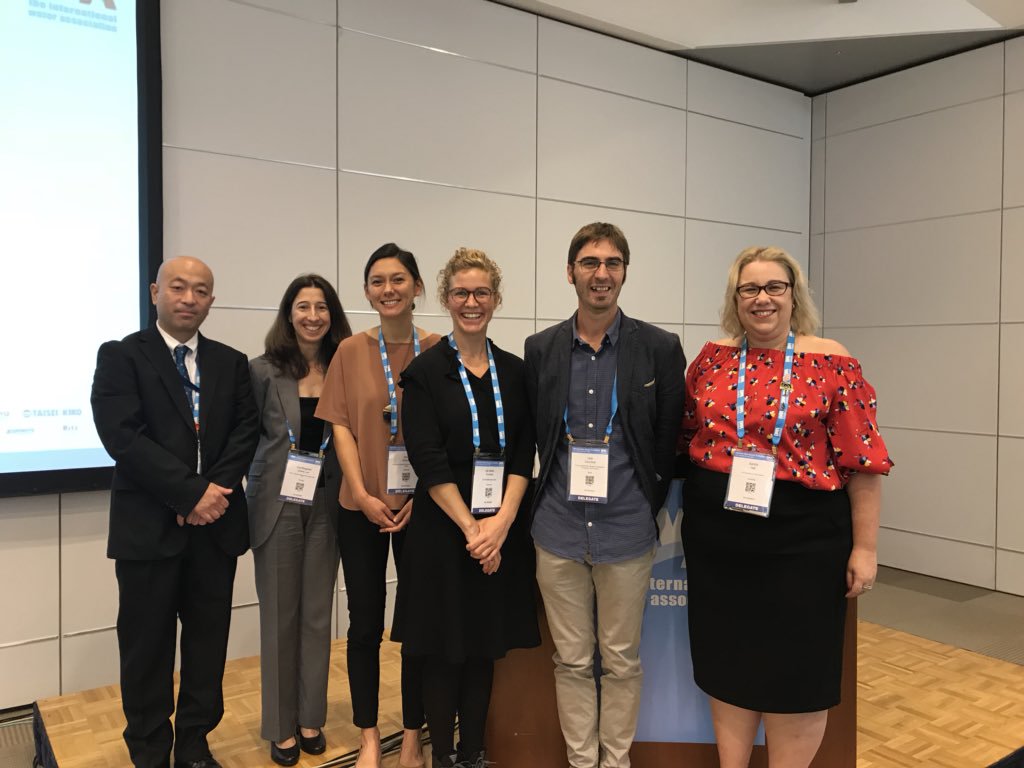IWA World Water Congress showcases IWA-CRCWSC partnership

The ‘Water-Wise Cities’ workshops and the prominent role our researchers and Executive team played at the global IWA World Water Congress in Tokyo in September not only attracted great interest from attendees but showcased our role as an active partner in the IWA Water-Wise Cities partnership.
Through the partnership, we’re sharing our knowledge and expertise to create water-wise cities, as part of the Water-Wise Cities Initiative Knowledge Platform.
The Water-Wise Cities Initiative aims to accelerate the transition to water-wise cities as a necessary step towards a water-wise world. As a partner of the Water-Wise Cities Initiative, we’re collaborating with the IWA and other partners in three main ways:
- We’re helping advance the knowledge available to cities and the professionals who serve them.
- We’re developing capacities of water professionals to become actors of water-wise cities.
- We’re influencing the actors of change.
The IWA World Water Congress was a global platform on which we could work with the IWA and other partners to progress all three of these actions.
With a focus on the Asia region and the digital economy, megacities, resilience and sustainability, this year the biennial Congress program featured three workshops on water-wise cities:
Workshop 1: Multi-purpose water services. This session, chaired by our Chief Research Officer, Professor Jurg Keller, was designed to share platforms for planning, designing, and implementing Water Sensitive Cities. Our researchers, Katie Hammer and Christian Ulrich, presented some of the CRCWSC’s key tools.
Katie explored the WSC Transition Platform, which helps cities kickstart their journey to becoming water sensitive. The platform relies on stakeholder inputs and has tools that help to prioritise key actions. It encourages all stakeholders to unite behind a single vision and direction, which the second Water-Wise Cities session highlighted as crucial to success. Katie also presented the WSC Index and a transitions dynamic framework, which helps policy makers identify strategies and actions to progress the Index score.
Christian Ulrich presented our WSC Design Platform for planning and scenario building, which is a model that helps cities understand various development scenarios and compare them against different strategies.
The three key messages of this session were:
- Identify champions who will help you push the WSC agenda further.
- Develop compelling business cases to get unwilling/disengaged stakeholders involved.
- Start small: solutions don’t have to be wide-scale immediately.
Jurg told the audience: ‘A lot of the time, the biggest achievement is getting everyone in the room and getting them to recognise they’re part of the solution. The process itself is just as important as the tools used to get there.’

Workshop 2: Implementing water-wise cities around the world: lessons learned. This session aimed to show attendees the lessons learned from different cities along their water-wise journeys, and to share challenges and case studies to uncover new ideas.
Our CEO, Professor Tony Wong, spoke about a water-wise approach to revitalisation of urban informal settlements in the Asia-Pacific, using Jakarta, Indonesia as an example. Tony told the audience:
- Rural WASH solutions have simply been replicated in urban slum settings, but WASH is successful in rural areas because of environmental assimilation, which is not the same for urban areas. There is no significant statistical data that WASH is delivering public health in urban slums.
- The Revitalising Informal Settlements and their Environments (RISE) program aims to transform 24 settlements to become water-sensitive, thereby improving health outcomes particularly on gastrointestinal diseases among children.
- Solutions are co-designed with communities. In Jakarta, communities were helped to understand the stressors and hazards, and ultimately chose which of the solution options they are amenable to. It was decided that the community will take care of the revitalised wetlands. In addition, the recycled wastewater is being used for local economy (agriculture).
As part of this project, the project team launched a paper at the Asia Water Forum 2018 in October, which aimed to help encourage financial institutions to incentivise more investments in water-sensitive solutions for urban poor communities.
Tony told the audience: ‘The developed world is embracing nature-based solutions! We want developing countries to be able to implement them as well.’
Our International Engagement Manager—China, Jianbin Wang, also presented at this session, and discussed using an integrated water system approach to achieve innovative solutions in rapidly developing cities, using our work in Kushan, China as his example. Jianbin outlined:
- the whole-of-polder strategy, which helped put the interventions into a larger perspective
- the concept that while nature-based solutions are the preference, the implemented solutions in the China example were a mix of green, blue and grey infrastructure
- the importance of stakeholder engagement
- the need for coordinated efforts from government and other stakeholders.
The third workshop was about water for smart liveable cities and focused on sharing experiences in planning, design and implementation of water-wise principles and how water smart solutions can help us meet the objectives of health and liveable cities. Key messages from this session were:
- Stakeholder engagement manages people’s expectations and improves willingness to pay.
- Embrace data as the future of the water sector.
- We need ICT capacity building within the water sector.
Jurg told this session: ‘How do we create the urgency needed? We should admit that we don’t have all the answers already, and we need to innovate, or else decision makers will continue to cut funding to the water sector.’
The IWA is the largest global network of water professionals, with 10,000 members in over 100 countries. We are proud of our partnership with the IWA.